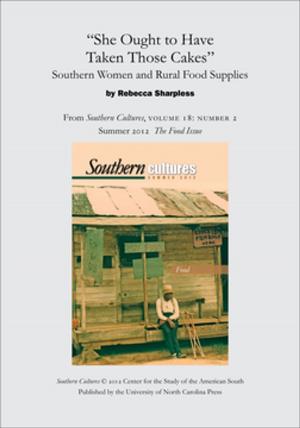A Short, Offhand, Killing Affair
Soldiers and Social Conflict during the Mexican-American War
Nonfiction, Social & Cultural Studies, Social Science, Discrimination & Race Relations, History, Americas, United States, 19th Century, Military| Author: | Paul Foos | ISBN: | 9780807862001 |
| Publisher: | The University of North Carolina Press | Publication: | November 3, 2003 |
| Imprint: | The University of North Carolina Press | Language: | English |
| Author: | Paul Foos |
| ISBN: | 9780807862001 |
| Publisher: | The University of North Carolina Press |
| Publication: | November 3, 2003 |
| Imprint: | The University of North Carolina Press |
| Language: | English |
The Mexican-American War (1846-48) found Americans on new terrain. A republic founded on the principle of armed defense of freedom was now going to war on behalf of Manifest Destiny, seeking to conquer an unfamiliar nation and people. Through an examination of rank-and-file soldiers, Paul Foos sheds new light on the war and its effect on attitudes toward other races and nationalities that stood in the way of American expansionism.
Drawing on wartime diaries and letters not previously examined by scholars, Foos shows that the experience of soldiers in the war differed radically from the positive, patriotic image trumpeted by political and military leaders seeking recruits for a volunteer army. Promised access to land, economic opportunity, and political equality, the enlistees instead found themselves subjected to unusually harsh discipline and harrowing battle conditions. As a result, some soldiers adapted the rhetoric of Manifest Destiny to their own purposes, taking for themselves what had been promised, often by looting the Mexican countryside or committing racial and sexual atrocities. Others deserted the army to fight for the enemy or seek employment in the West. These acts, Foos argues, along with the government's tacit acceptance of them, translated into a more violent, damaging variety of Manifest Destiny.
The Mexican-American War (1846-48) found Americans on new terrain. A republic founded on the principle of armed defense of freedom was now going to war on behalf of Manifest Destiny, seeking to conquer an unfamiliar nation and people. Through an examination of rank-and-file soldiers, Paul Foos sheds new light on the war and its effect on attitudes toward other races and nationalities that stood in the way of American expansionism.
Drawing on wartime diaries and letters not previously examined by scholars, Foos shows that the experience of soldiers in the war differed radically from the positive, patriotic image trumpeted by political and military leaders seeking recruits for a volunteer army. Promised access to land, economic opportunity, and political equality, the enlistees instead found themselves subjected to unusually harsh discipline and harrowing battle conditions. As a result, some soldiers adapted the rhetoric of Manifest Destiny to their own purposes, taking for themselves what had been promised, often by looting the Mexican countryside or committing racial and sexual atrocities. Others deserted the army to fight for the enemy or seek employment in the West. These acts, Foos argues, along with the government's tacit acceptance of them, translated into a more violent, damaging variety of Manifest Destiny.















